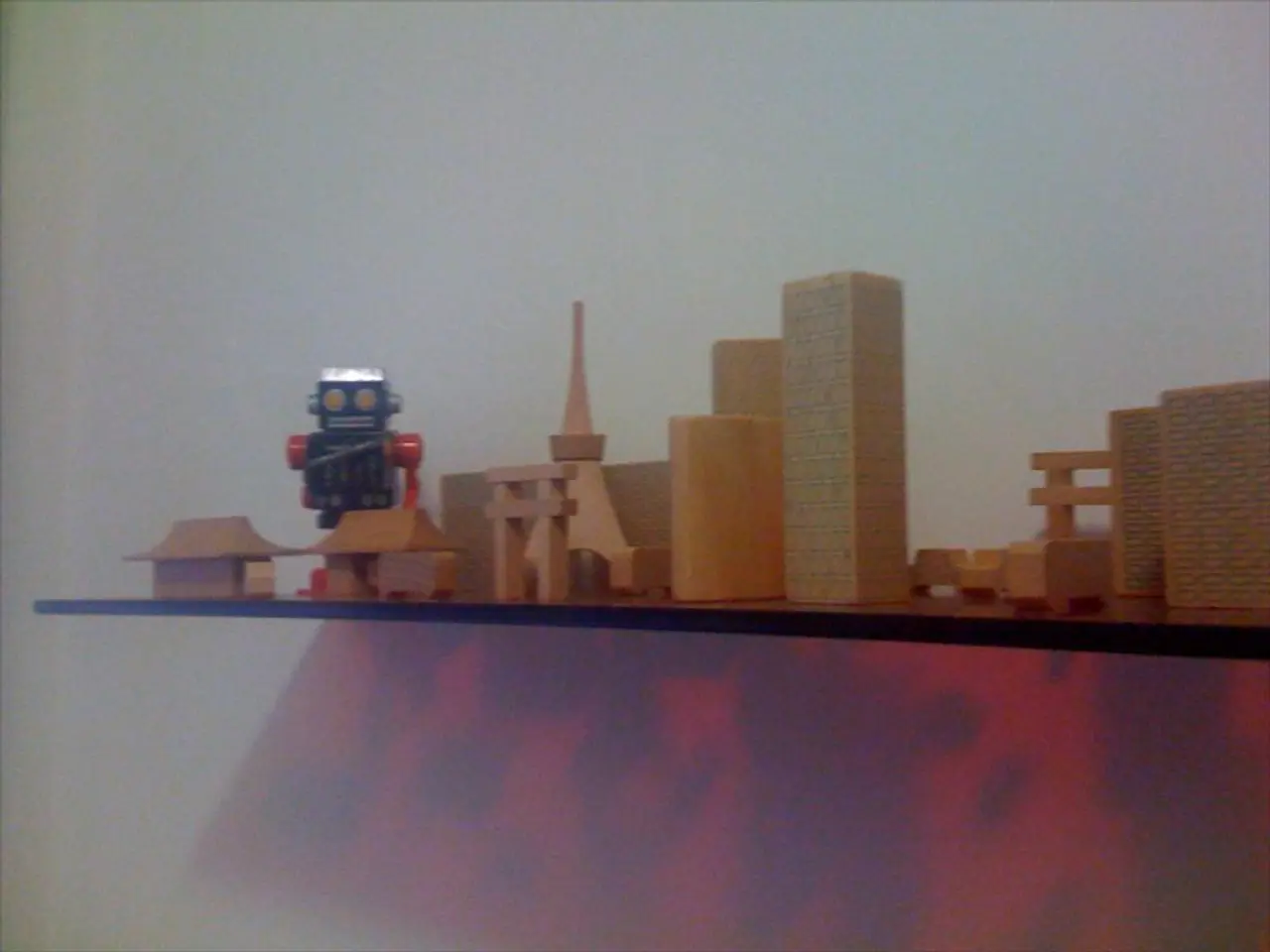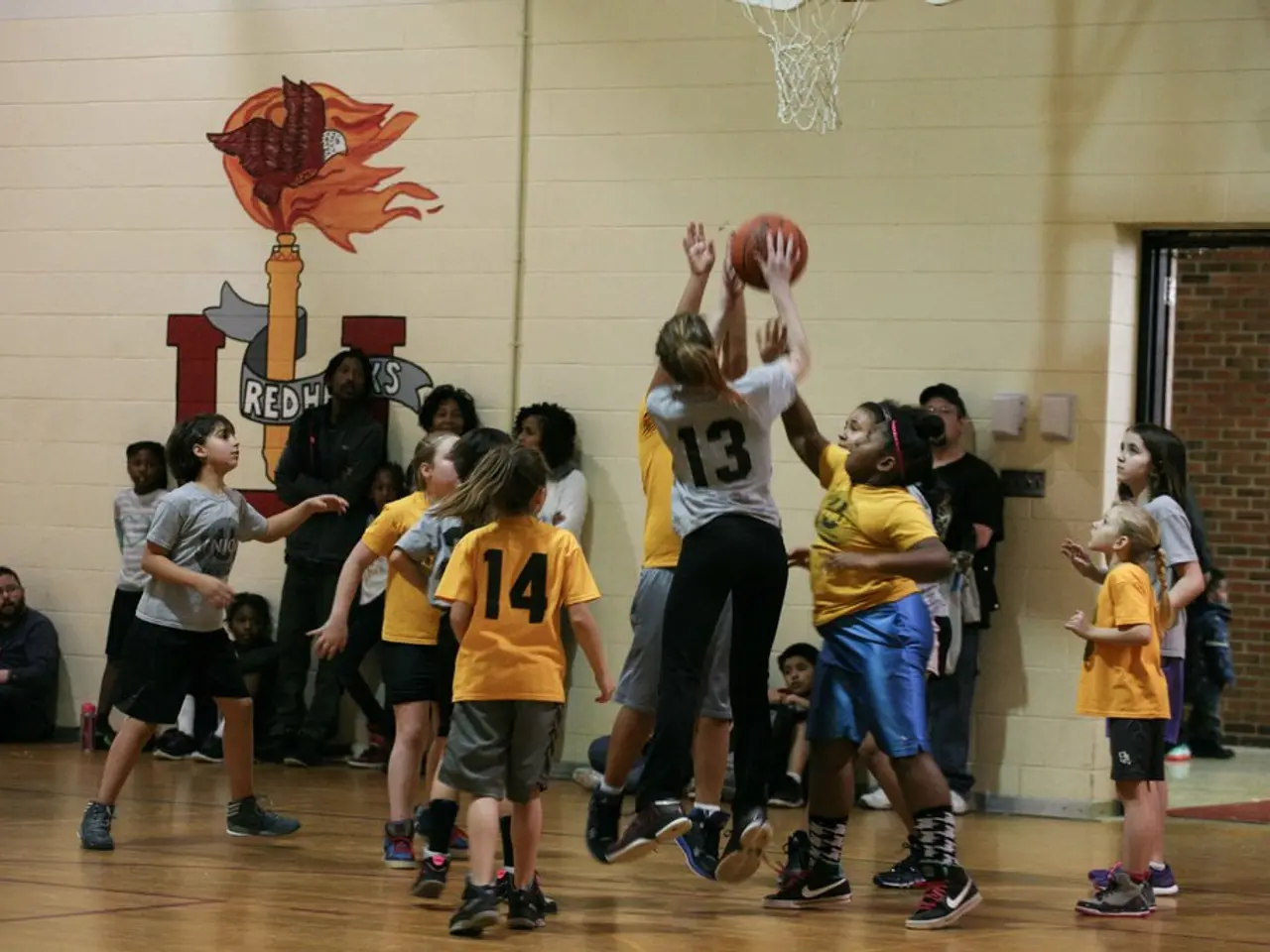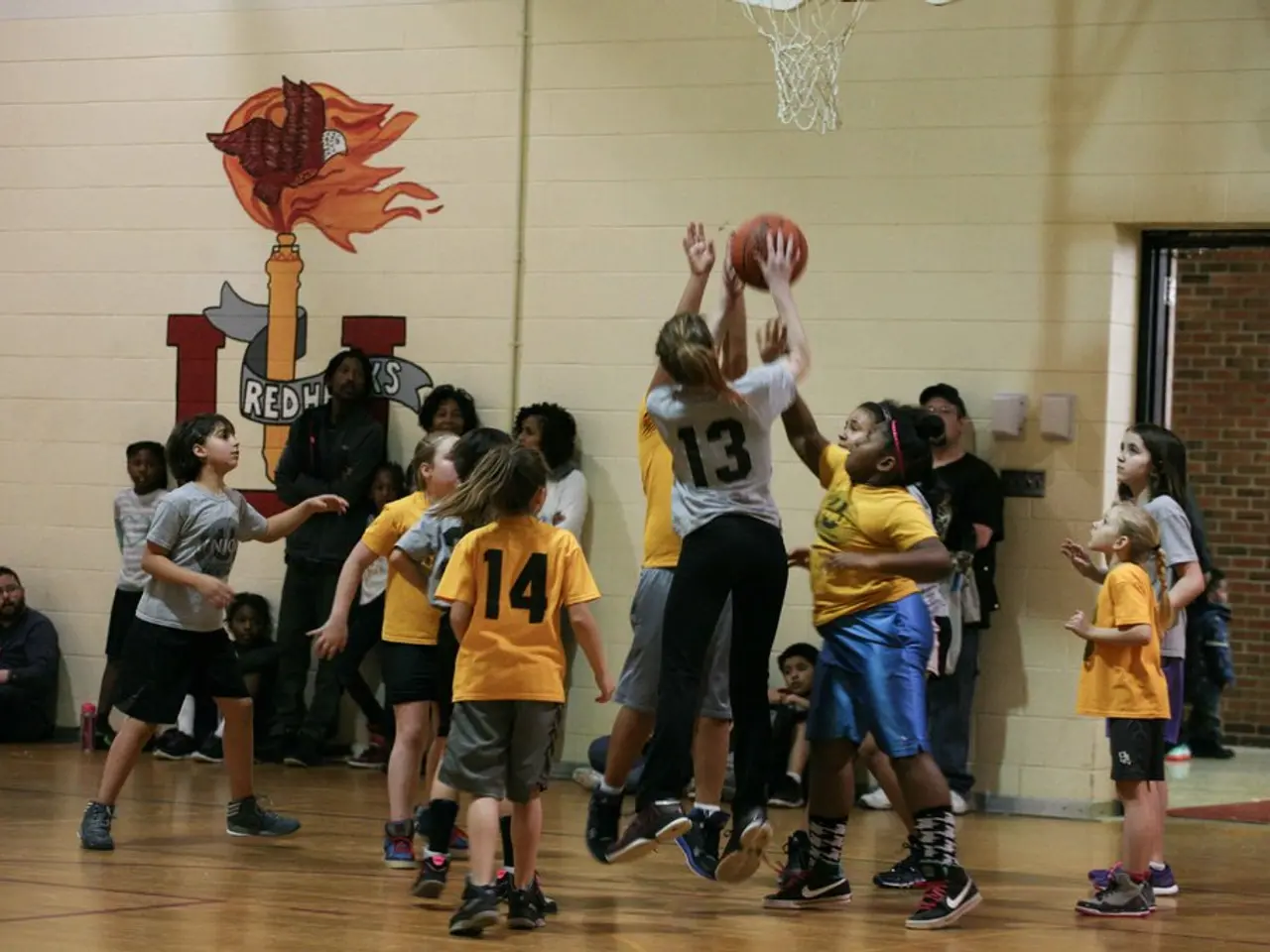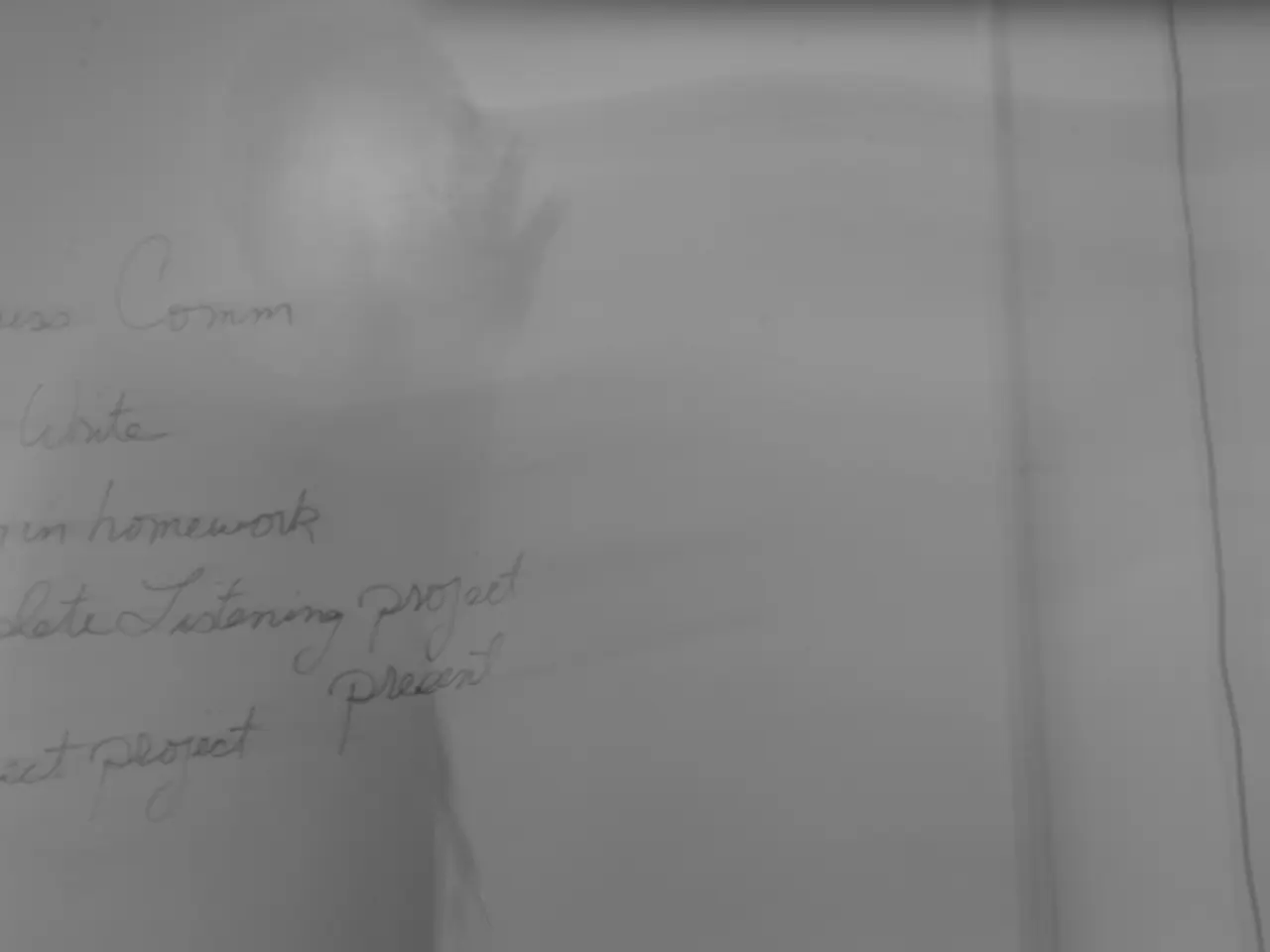Retail sector in Saudi Arabia experiences a surge in emotional spending due to Pop Mart's Labubu toy phenomenon
Emotionally Charged Collectibles Fuel Retail Innovation in the Middle East
A new retail trend is sweeping across the Middle East, as local brands begin to mirror the strategies of Pop Mart, a Chinese pop culture giant. This trend, centred around timed drops, influencer-driven buzz, and exclusivity, aims to convert one-time buyers into loyal fans [1].
At the heart of this movement is the Labubu doll, a collectible created by artist Kasing Lung and popularised by Pop Mart. These dolls, priced between SR300 and SR400 ($80-$113), are distributed through "Blind Box" formats that conceal which design a buyer will get [1]. This element of surprise, coupled with emotional urgency and scarcity, drives consumer engagement and profits [1].
The Labubu dolls have transcended niche collectible status to become trendy luxury and fashion accessories among young, tech-savvy consumers in the region. They are now styled alongside luxury handbags and fashionable outfits, becoming status symbols across various demographics [1].
The convergence of commerce, culture, and emotion is redefining how value is created in modern retail. This trend is particularly evident in Saudi Arabia, where the demand for Labubu dolls and other limited-edition collectibles is reshaping how consumers engage with retail. The psychological triggers of fear of missing out (FOMO) and scarcity play a significant role in this shift [1].
Saudi Arabia's retail sector benefits from this trend amid broader economic growth. In Q2 2025, the country recorded a GDP growth of 3.9% year-on-year. Pop Mart reported dramatic revenue increases globally—106.9% growth in 2024 to $1.81 billion, largely driven by Labubu sales [1][2].
The viral nature of these collectibles on platforms like TikTok (over 2.4 million Labubu-related posts globally) and celebrity endorsements (e.g., K-pop and Western artists) amplify desire, turning emotional micro-purchases into strong retail drivers in the region [1][4].
While the craze is prominent in Saudi Arabia and the UAE, similar demand spikes are seen in other countries, including India and Europe, underscoring the global and regional impact on retail and consumer behaviour [3][4].
Pop Mart's success can be attributed to its multi-pronged strategy of IP storytelling, retail innovation, and psychological engagement, positioning it as a textbook case of emotional commerce. Offline, events such as Riyadh Season have featured Labubu-themed installations, elevating the character to a pop-cultural symbol [1].
Platforms like Desertcart and other e-commerce players are helping local consumers access global Labubu releases with ease. In the UAE, Labubu dolls are delivered by platforms like Careem in under 20 minutes for 305 dirhams ($83) [1].
Pop Mart's global expansion strategy, direct-to-consumer model, and experiential retail approach played a crucial role in the company's explosive growth. In August 2024, Pop Mart established Pop Mart Middle East Trading L.L.C. in the UAE with a registered capital of 2.5 million dirhams [1].
Vijay Valecha, chief investment officer at Century Financial, attributes Pop Mart's success to the rise of emotional spending in an era of uncertainty [1]. The Labubu dolls, with their ability to tap into consumers' emotions and create a sense of urgency, have become a powerful force in the retail landscape of the Middle East.
References: [1] Al-Khaleej Today. (2025). Labubu Dolls: The Emotional Micro-Purchases Reshaping Retail Trends in the Middle East. Retrieved from https://www.alkhaleejtoday.com/business/labubu-dolls-the-emotional-micro-purchases-reshaping-retail-trends-in-the-middle-east/ [2] Gulf Business. (2025). Pop Mart's Labubu Dolls Take Middle East by Storm. Retrieved from https://gulfbusiness.com/pop-marts-labubu-dolls-take-middle-east-by-storm/ [3] Forbes Middle East. (2025). The Global Impact of Pop Mart's Labubu Dolls. Retrieved from https://www.forbesmiddleeast.com/the-global-impact-of-pops-labubu-dolls/ [4] Arab News. (2025). Labubu Dolls: A Social Media-Driven Retail Phenomenon. Retrieved from https://www.arabnews.com/business/labubu-dolls-social-media-driven-retail-phenomenon/ [5] Zawya. (2025). Pop Mart Establishes Presence in the UAE. Retrieved from https://www.zawya.com/mena/en/business/companies/news/pop-mart-establishes-presence-in-the-uae-n-AANV7GzA2C6KWZ/
- The Labubu dolls, originating from Pop Mart, have stimulated a new retail trend in Saudi Arabia, emulating the strategies of their Chinese predecessor, with a focus on exclusivity and emotional engagement.
- Art, fashion, and commerce converge in the Middle East, as the Labubu dolls are no longer mere collectibles, but trendy accessories in the region, symbolizing status and luxury.
- The trend of emotional micro-purchases, driven by fear of missing out (FOMO) and scarcity, has a profound impact on the economy of Saudi Arabia, particularly in the retail sector, contributing to their GDP growth.
- The demand for limited-edition collectibles, such as the Labubu dolls, has extended beyond Saudi Arabia and the UAE, spiking in countries like India and Europe, showcasing the global influence of such retail trends.
- Amid the rise of emotional spending in uncertain times, Pop Mart's success, fueled by their direct-to-consumer model and experiential retail approach, positions them as a leading alternative in art, culture, and economy in Arabia and beyond.







